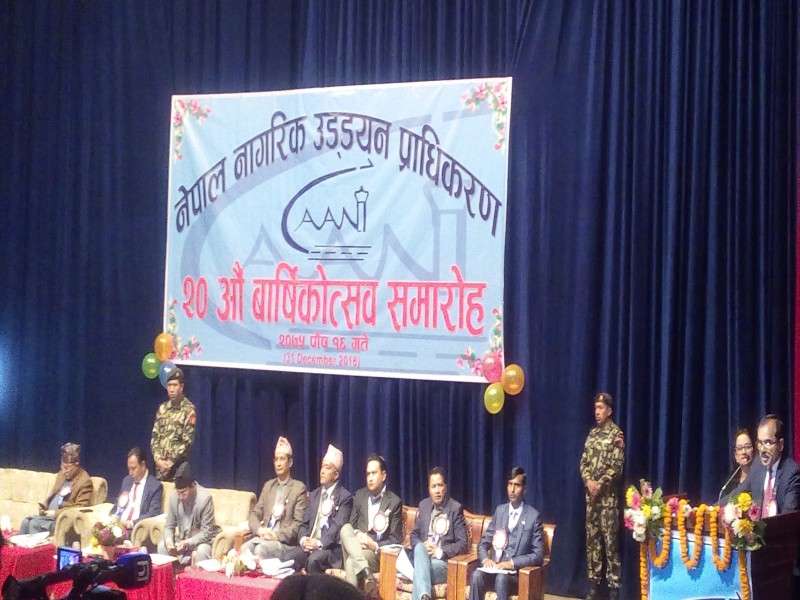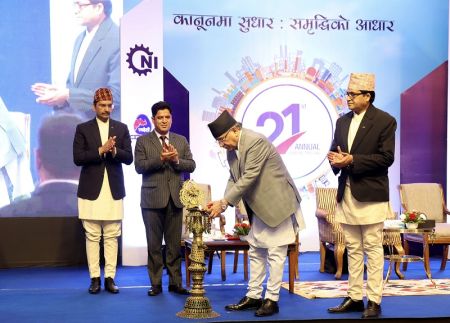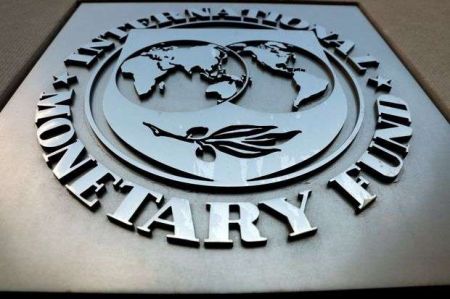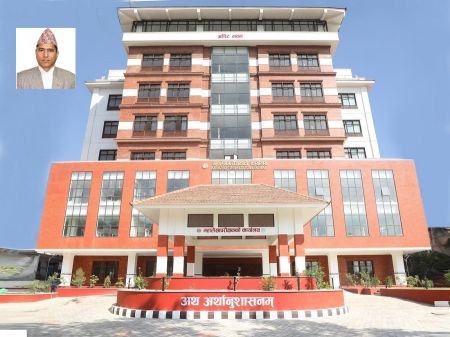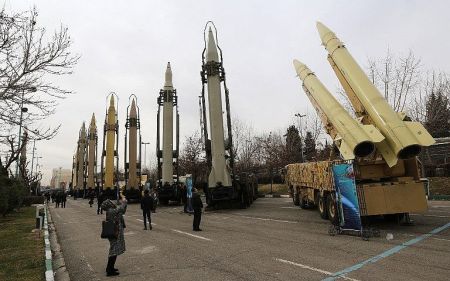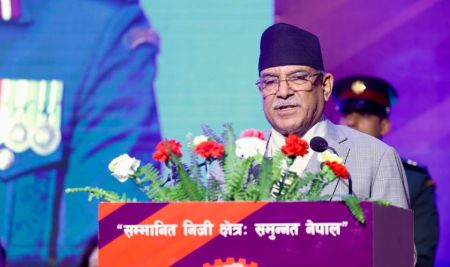January 1: In order to enhance flight safety and to maintain the standard and effectiveness of the aviation sector, the government has decided to split the Civil Aviation Authority of Nepal (CAAN), the country’s aviation regulatory body, into two autonomous entities. According to Minister for Culture, Tourism and Civil Aviation Rabindra Adhikari, the government has made necessary preparations to divide the CAAN into regulator and service provider.
Stressing the need of separating the duties of a regulator and service provider during the 20th anniversary of CAAN on December 31, Minister Adhikari said the division will propel the growth of the aviation sector in Nepal.
“The decision of splitting CAAN into regulator and service provider was not taken under the pressure of anyone or the European Union (EU). We believe that the segregation will fit in the current scenario of the aviation sector of Nepal,” he said.
He also requested the CAAN’s employees to continue their work effectively in the same sections they have been assigned to.
“The Ministry of Culture, Tourism and Civil Aviation is highly concerned about employees’ adjustment and growth of the industry. We will fulfill all these things through the existing legal provisions.”
The minister asserted that the government took such decision to make the aviation sector an autonomous body. “This division doesn’t mean that we want to make CAAN fragile. We just want to ensure growth of this sector by making it competent in the global aviation market.”
Likewise, Minister Adhikari said that preparations are underway to make the Gautam Buddha International Airport ready for operation within 2019. He also informed that the construction of Pokhara Airport will be completed within the project deadline and the work of Nijgadh Airport will be carried out according to the report prepared by a parliamentary committee.
According to the Secretary at the Ministry of Culture, Tourism and Civil Aviation, Krishna Prasad Devkota, the government’s attempt to make Tribhuvan International Airport as a boutique airport reflecting nationality and new technologies will be initiated from April 14 this year.
He also informed the audience that the authority has already fulfilled the requirement of ICAO and also corresponded with the EU directly through the Ministry of Foreign Affairs to remove Nepal from the blacklist.
Sanjiv Gautam, director general of CAAN,
said that Nepal has signed bilateral flight agreements with 38 nations till date and a total of 29 international airliners from 13 different countries including three Nepali airline companies are operating flights to the Tribhuvan International Airport. He informed 3.54 million passengers arrived at the TIA within the first 10 month of 2018 through international airlines while 2.30 million passengers arrived at the airport through Nepal aircraft.
During the program, CAAN’s Employee Trade Union expressed disagreement regarding splitting the CAAN. Anil Gupta, a representative of CAAN’s Employee Trade Union, said, “Splitting CAAN into Service provider and regulator cannot help the aviation sector of Nepal to remove itself from the Significant Safety Concern (SSC) list of the EU.”
The union demanded ending the restriction of EU diplomatically rather than by changing the existing structure of CAAN.


